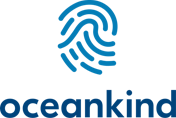| Grantee | Institute of Social and Environmental Studies and Entrepreneurship - IESA ↗ |
| Grant Amount | 50000 |
| Duration | 10 Months |
The project “Sustainability and traceability of small-scale fisheries in São Paulo, Brazil” aims to establish market incentives to promote transparency and sustainability of fishing and improve management in the North Coast Marine Protected Area (MPA) in the state of São Paulo, Brazil. The project is led by IESA in partnership with Paiche, Shellcatch, São Paulo´s Fishing Institute, and MPA managers.
Today, fishers have little incentives for deploying sustainable fishing practices in Brazil. This project will work towards changing this scenario by rewarding small-scale fishers that work sustainably, and demonstrate the benefits of sustainable fishing for fishers and consumers. This pilot project will employ Shellcatch’s traceability technology in five vessels to produce information on where the fish was caught, by whom, using which gear, and if practices met sustainability criteria. Selected restaurants in São Paulo city will access this data using a QR code, and offer to consumers knowledge about the origin of the fish on the menu. We expect that the project will add value to artisanal fisheries, rewarding fishers who work within legality and have sustainable practices. We also hope to increase market demand for sustainable small-scale fisheries in Brazil’s largest consumer market.
In addition to the market incentives, our project will contribute to increasing transparency of fishing inside the MPA. Through a direct collaboration with MPA managers, this project will put in place important milestones to improve zoning, strengthen enforcement, combat illegality, and help conflict resolution inside the MPA.
This pilot project will demonstrate how fishers, consumers and public institutions can benefit from transparency and sustainability. By demonstrating the benefits of valuing sustainable small-scale fisheries and expanding market demand for such products, we expect the model to be expanded inside São Paulo’s North Coast MPA, and replicated in other MPAs. Having a large number of vessels with tracking data will strongly contribute to MPA management and foster ocean conservation in Brazil.



%20(1).jpg?auto=compress%2Cformat)

















